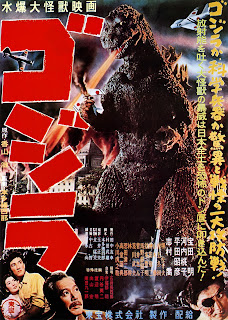The Illusionist (Dir Sylvain Chomet, 1h 17m, 2010)
In 1956, between his second and third films, Jacques Tati began work on a script. Though never made, the script was clearly personal, with Tati's surviving relations regarding the script as the film-maker and actor's attempts to come to terms, not only with the relationship with his teenager daughter, but also his eldest and largely disowned daughter, Helga Marie-Jeanne. The film's painfully close subject matter left it unmade, with Tati dying in 1982. Yet, The Illusionist, directed by Sylvain Chomet, the creator of Belleville Rendez-vous faithfully brings Tati's script into animated life, with a struggling magician taking a young fan under his wing, in a film that's as beautiful as it is emotive.
With the unnamed magician, physically based on Tati, and taking cues from Tati's beloved bumbling figure of Monsieur Hulot, down on his luck, playing to tiny audiences, together with his bad-tempered rabbit, so we see him crisscross France to dwindling audiences, and finally to England, where he is upstaged by nascent rock music and finds himself finally carrying out his act at a drunken party, where he is finally invited to rural Scotland, by one of the guests. This part of the film alone is a masterpiece of nigh-silent film-making, taking influence from Tati's cinematic style in the nigh wordless, and almost entirely physical and visual story-telling, with one of the standout sequences the increasingly irritated figure of the magician waiting off-stage as the foppish rock band take encore after encore, until he finally takes the stage, to find the cheering crowds have faded away. It is this central theme, of the world of the entertainer, of the music hall, fading away, in miniature
Travelling to Scotland, in a beautifully animated and beautifully scored sequence, as train gives way to car to boat, so he arrives in a remote community, and, for the first time, feels appreciated by the captive audience-this, however, is upstaged by the arrival of electricity in the remote community, together with a return of the music of the earlier band. Nevertheless, it's a remarkably upbeat part of the story, and he soon finds himself accompanied by a fan who works at the community's pub, who becomes fascinated by the magic that he does, and soon carries out chores for him. Slowly, he begins to reciprocate, replacing her battered boots with shoes; there is a tenderness to these scenes, of the slowly blossoming friendship between the two, in quiet, beautifully animated scenes. Unmistakably, it is here that Tati's script is at its most personal-the relationship is, unmistakably, that relationship between a doting father and a daughter, of caring mentor and fan.
With the magician leaving, to head back towards Edinburgh, so the young woman stows away, and the two eventually find housing in a downbeat boarding house with other struggling artists. If nothing else, the film renders Edinburgh in the 1960s perfectly, down to painstaking detail, not just in the feel of the streets and interiors, but in the sense of the location, in impressive sweeping longshots, is beautifully rendered, from the grubby back-streets to the upmarket mile-it's rare to see a location be so perfectly re-created outside of Japanese animation, but the detail, and the impressive scale of Edinburgh is a perfect background to this story.
And yet, against this colossal backdrop, it is the intimacy of this story, in its almost painfully personal sense, so the film builds upon their friendship, with the young woman carrying out chores for the magician, including a tender moment where she finally tames the rabbit that has proved a hinderance to the older man, and carries out chores for the two of them, whilst the magician has to carry out increasingly meagre jobs whilst carrying on his role of the illusionist in a small down and out theatre, in order to buy things for the young woman. All of these jobs, from assisting a trio of acrobats in poster painting, to working as a car valet, to the most humiliating, working as a veritable shop dummy and using his skill as a magician to show off lingerie and perfume, and the duo become increasingly destitute, with the magician at one point assuming, in a beautifully mounting comic sequence, that the young woman has cooked and served his rabbit.
The film eventually ends on a downbeat sense; the young woman eventually drifts away, catching the attention of a young man, and the magician, releasing his rabbit, eventually leaves, declining to perform one final trick for a child on a train, and leaving the young woman a note saying, simply, "magicians do not exist". The ending, unmistakably, is Tati trying to come to terms with the loss of that connection with his daughter, in beautifully, almost painfully personal terms-it is Tati at once unable to let go of his daughter, even one that he essentially broke ties with, and realising that he must in a sense let her go. This is beautifully depicted in the animation-the moment when the magician spots the couple, and eventually steps into a film, not only brings us face to face with the real Tati, on the screen, but is perfectly, visually, heartbreaking-never again do we see the magician and his young ward appear on screen, and when the two cross again, they do not notice each other.
The Illusionist, thus, is a beautifully told, and melacholic story; the fact that it is almost dialogue-less, with Tati's typical Mon Oncle-esque muted style, with only occasional, almost nonsensical dialogue, means that the animated sense of the film does almost all the heavy lifted, in scenes that float between the gently comic and the lingeringly sad. Whilst the film's history has led some to regard this as something of a revisionist approach to the complexities of Tati's life, one cannot deny that the Illusionist is a spectacular tribute to one of France's greatest film-makers
Rating: Highly Recommended



Comments
Post a Comment